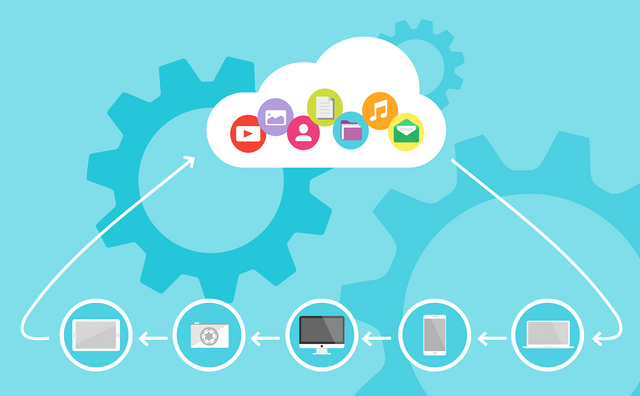The world's financial exchanges are powered by cloud computing.
The introduction of cloud computing technologies is altering the way several of the world's top financial exchanges conduct global capital markets.
CME Group, a financial derivatives exchange, signed a 10-year agreement with Google in November to migrate its IT infrastructure and markets to the cloud. CME claims that this will allow it to introduce new goods and services considerably faster.
Nasdaq and Amazon Web Services announced a similar partnership a few weeks later. AWS will collaborate with Nasdaq over the course of several years to migrate the latter's North American markets to the cloud.
According to Adrian Poole, head of financial services at Google Cloud UK, traditional institutions like financial exchanges are lured to cloud infrastructure because they want to "expand market access" and "streamline processes."
He argues that they can achieve these goals because cloud technology is versatile and scalable, allowing businesses to scale capacity up or down at any time.
But, as Poole points out, cloud adoption isn't only about bettering infrastructure. He points out that global corporations, such as CME Group, are leveraging cloud computing's increased processing capacity to "meet client demands in new ways" and "drive transformation."
"Data analysis can happen at lightning speed because of the tremendous amount of computer power that the cloud provides," he argues. "This means that organizations who wish to undertake things like risk management can do so in real time, responding minute by minute to issues like legal responsibility and financial uncertainty."

"Organizations can take advantage of these capabilities by, for example, utilizing data analysis to develop automated risk mitigation solutions."
Financial institutions that handle large volumes of sensitive data — and have become prominent targets for thieves — might benefit from cloud computing's security and privacy features.
According to Poole, cloud providers may address the demand for constant risk monitoring and regulatory compliance by implementing zero-trust models. These ensure that all user identities are validated, whether they are in or out of a network.
Customer data is further protected by the technical philosophy of 'redundant design,' which involves duplicating important system components for backup and greater reliability.
Spectrum Markets, a pan-European securitized derivatives trading arena, leverages cloud computing to store and analyze data. The most major benefit of cloud systems, according to the company's CEO, Nicky Maan, is the ability to employ digital infrastructure to accelerate business growth.
"Because data storage and processing are not dependent on traditional in-house hardware capabilities, it's incredibly straightforward to scale up the cloud resources you utilize as needed." You can simply rent the extra capacity that you require.
"This can even operate automatically," Maan adds, "where your system senses it needs greater capacity and acquires new resources immediately." "As a result, if the number of financial products listed on your platform increases from 2,500 to 100,000, you won't need to construct new systems to store all the data or scale up your analysis power to manage the increased volume of data."
Financial institutions that outsource their technical infrastructure to cloud providers such as Amazon, Google, or Microsoft, must ensure that their systems comply with industry regulations such as the Financial Conduct Authority in the United Kingdom and the Securities and Exchange Commission in the United States.
"This includes having complete control over latency — the speed at which information is transmitted and used to price financial products appropriately — as well as the flexibility to shift any outsourced element of your infrastructure to another provider if something goes wrong," Maan explains.
"Saying 'my supply went down' to the regulator isn't a valid justification," he emphasizes. "As a result, you must be able to change your supplier if they consistently fail you."
However, because transitioning between two cloud platforms is difficult, he advises financial exchanges to keep "complicated, integrated, and time-sensitive systems" on hardware-based infrastructure.
The matching engine of a digital exchange is an example of such a system – "the heart of any marketplace, as it decides the pricing at which buyers and sellers interact."
However, according to Conor Colleary, group vice-president of financial services at Oracle, a single cloud provider may not be enough to manage all risks.
"With service availability and security as top objectives, stock exchanges must be aware that the stakes of a single cloud service provider service interruption are higher, as organizations "As capital markets organizations rely on their clients' confidence in their ability to be online 24/7 in order to transmit data to consumers as quickly as technically possible," Colleary continues, "resilience and trust are critical."
Furthermore, cloud technology allows for the replacement of outdated networking equipment and servers, which are often costly and time-consuming to maintain.
Emerging technologies such as artificial intelligence (AI) and quantum computing, according to Chris Weston, principal of client advising at analyst firm IDC, will revolutionize cloud capabilities in the near future. must ensure they are using the best cloud for each given function or workload," he advises. To avoid "placing all your eggs in one basket," do this.
According to Colleary, businesses can prevent system outages, cyber security breaches, and internet traffic issues by using a multi-cloud strategy, which involves using a variety of cloud services from multiple providers rather than just one. This implies stock exchanges may "play to the diverse strengths of multiple clouds" and have a backup plan in case their cloud service fails.
For example, he believes that firms that conduct numerous transactions and store enormous amounts of data may be able to use quantum computing platforms to execute "calculations that were previously impossible or took much too long on ordinary computers."
Meanwhile, sophisticated AI capabilities will enable securities exchanges to conduct "real-time analysis of trading to identify and mitigate compliance and conduct issues as they develop."
AI and quantum computing, according to Weston, "will constitute part of the technology road maps of these organizations over the next five to ten years."